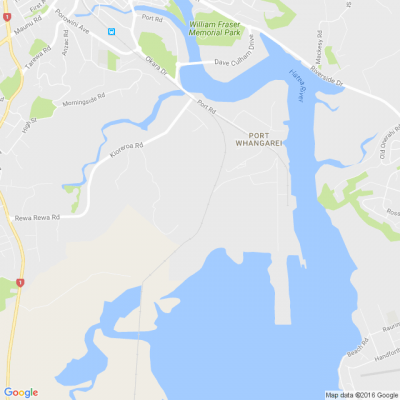
Know what’s happening
Access the private noticeboard for verified neighbours near you. Keep informed about any suspicious activity, send urgent updates to your neighbours when required and discuss emergency planning.
Get to know your neighbours
Browse the directory and start getting to know your neighbours. Don’t want to post to the whole neighbourhood? Send a private message.
Buy, sell and give away
Want to declutter your garage? Buy some used household items? Give away some garden stuff? Become a verified neighbour to browse and post items for sale. Trading is simple when everyone lives nearby.


Got some bits to give away?
Clear our that garage and pop it on Neighbourly Market for free.

Thank you for using Neighbourly
You may receive an email confirmation for any offer you selected. The associated companies will contact you directly to activate your requests.
If you’re Māori and enrolled to vote, look out for your Māori Electoral Option pack in the mail. You can choose to be on the Māori roll or General roll. Find out more

Kerry from Glenbervie
The Closing of the American Mind is a: "1987 book by Allan Bloom that made the NY Times bestseller list. It describes 'how higher education has failed democracy and impoverished the souls of today's students.' He focuses especially upon the 'openness' of relativism as … View moreThe Closing of the American Mind is a: "1987 book by Allan Bloom that made the NY Times bestseller list. It describes 'how higher education has failed democracy and impoverished the souls of today's students.' He focuses especially upon the 'openness' of relativism as leading paradoxically to the great 'closing' referenced in the book's title. Bloom argues that 'openness' and absolute understanding undermines critical thinking and eliminates the 'point of view' that defines cultures." [For Bloom, openness in this sense refers to the openness of relativism where all ideas are treated and seen to be equal and should be received 'openly' as equal and valid and thus denies the exclusive nature of objective truth]
The Closing of the American Mind is a critique of "the contemporary university and how Bloom sees it as failing its students. In it, Bloom criticizes the modern movements in philosophy and the humanities. Philosophy professors involved in ordinary language analysis or logical positivism disregard important 'humanizing' ethical and political issues and fail to pique the interest of students. Literature professors involved in deconstructionism promote irrationalism and skepticism of standards of truth and thereby dissolve the moral imperatives which are communicated through genuine philosophy and which elevate and broaden the intellects of those who engage with these imperatives. To a great extent, Bloom's criticism revolves around his belief that the 'great books' of Western thought have been devalued as a source of wisdom. Bloom's critique extends beyond the university to speak to the general crisis in American society."(Wikipedia)
And, as they say, when America sneezes, New Zealand gets pneumonia!
Harvard, Yale, Princeton, Stanford, Berkeley, Oxford, Cambridge and others were all Universities founded on Christian principles. The "queen" of the disciplines by which all the other disciplines were centered around was Theology, because the knowledge of God was the presupposition of all the other branches of knowledge, it was, so to speak, seen as the glue that held it all together, it helped make sense of everything else.
Dallas Willard Phd was an American philosopher also known for his writings on Christian spiritual formation. He was Professor of Philosophy at the University of Southern California, L.A.
He renewed the call to have a targeted skepticism towards secularism and how it and other philosophical pressures have so reshaped these learning institutions. He speaks about how instead of fostering open inquiry many universities are now acting as a huge authority:
'Over a period of time theology and all that was built around it disappeared from the universities, ...the university system in its history ... in the Western world, was built around things like John 3:16*. People actually believed it and they thought that it was a part of knowledge for the most part, that's a fact, now here's a question: What happened? How did that change come about? How did it come about that this was set aside, and instead of this kind of truth -secularism takes its place?
'I'm not questioning that, I'm just saying how did it happen? Generally speaking, people don't know how it happened. Was it that someone somewhere found out that John 3:16 was false? Or that it was not knowledge or something of that sort? Well a lot of people have thought that but if you were forced to trace it down and make it stick it might be hard to do. And so this is where we need to be skeptical. We need to be skeptical about John 3:16, we need to make it a topic of inquiry, but we also need to be skeptical about secularism. See one of the hardest things to do- is to be skeptical about the things that are in most need of skepticism. And if anything could be done about that on the campuses it would be a great renewal of intellectual life on the campuses. Now you have to look at the consequences of rejecting religious truth from the domain of truth, of identifying it with feelings. Where does that leave you? What does secularism give you to live by? '
'So you're secular- congratulations... What's next? And once we've got away from the idea that we need to get away from religion- then we have got to face the question- of what we're going to live by. And that is where our skepticism needs to take hold- it needs to drive us to inquiry and we need to go back to things that often look very familiar, but in fact really aren't, and we haven't thought about very much- on both sides of the question, secularism or God so loved the world that he gave his only begotten son...Skepticism is vital in education and we need to have a revival of it, targeted skepticism to help us pursue the knowledge that we need to live by and not just to pass courses.'
All of this points to the value of targeted skepticism, that we need to ask questions and we need to learn what the right questions are. The problem with education is it becomes institutionalized, that is, it becomes an unquestionable authority in its own right, and in as much it is institutionalized it ceases to promote knowledge. Truth becomes a matter of current "orthodoxy" the accepted view of reality and questions are not allowed of that orthodoxy. Open dialogue is 'verboten'. The areas of concern in these institutions are many and varied. One area is when the theory of evolution cannot be questioned, why intelligent design is not considered.
People become afraid to speak or ask questions because it could mean lower grades, or loss of opportunity or even- as is now documented- employment discrimination on the basis of belief, for even questioning the status quo. We need to ask these serious questions of other institutions also, particularly the Church which is after all the bastion of religious truth, knowledge and morality. This may not involve any change in current "orthodoxy" but it will- if questions are asked and encouraged- effectively guarantee a maturity that would otherwise fail to take place.
More recent development reveals a growing intolerance towards having controversial speakers attend conferences or give lectures.
On top of this "dumbing down" of education, just when adolescents are facing the prospect of living independently in a tough world- instead of preparing them to face the challenges- tertiary institutions have taken a backwards step and are imposing an overprotective regime, which will soon no doubt, (if it hasn't already), reverberate in other stratas of society.
Excerpt from "The Atlantic" written by JONATHAN HAIDT AND GREG LUKIANOFF (www.theatlantic.com...)
'Recently, the psychologist Lisa Feldman Barrett, a highly respected emotion researcher at Northeastern University, published an essay in The New York Times titled, 'When is speech violence?' She offered support from neuroscience and health-psychology research for students who want to use the word “violence” in this expansive way. The essay made two points that we think are valid and important, but it drew two inferences from those points that we think are invalid.
First valid point: "Chronic stress can cause physical damage." Feldman Barrett cited research on the ways that chronic (not short-term) stressors “can make you sick, alter your brain—even kill neurons—and shorten your life.” The research here is indeed clear.
First invalid inference: Feldman Barrett used these empirical findings to advance a syllogism: “If words can cause stress, and if prolonged stress can cause physical harm, then it seems that speech—at least certain types of speech—can be a form of violence.” ... But following this logic, the resulting inference should be merely that words can cause physical harm, not that words are violence. If you’re not convinced, just re-run the syllogism starting with “gossiping about a rival,” for example, or “giving one’s students a lot of homework.” Both practices can cause prolonged stress to others, but that doesn’t turn them into forms of violence.
Feldman Barrett’s second valid point lies in her argument that young people are antifragile—they grow from facing and overcoming adversity:
"Offensiveness is not bad for your body and brain. Your nervous system evolved to withstand periodic bouts of stress, such as fleeing from a tiger, taking a punch or encountering an odious idea in a university lecture. Entertaining someone else’s distasteful perspective can be educational. ... When you’re forced to engage a position you strongly disagree with, you learn something about the other perspective as well as your own. The process feels unpleasant, but it’s a good kind of stress — temporary and not harmful to your body — and you reap the longer-term benefits of learning.
In Feldman Barrett’s second invalid inference, she writes:
"That’s why it’s reasonable, scientifically speaking, not to allow a provocateur and hatemonger like Milo Yiannopoulos to speak at your school. He is part of something noxious, a campaign of abuse. There is nothing to be gained from debating him, for debate is not what he is offering."
Contrast this with the following from the same article:
'As Van Jones put it in response to a question by David Axelrod about how progressive students should react to ideologically offensive speakers on campus:
"I don’t want you to be safe, ideologically. I don’t want you to be safe, emotionally. I want you to be strong. That’s different. I’m not going to pave the jungle for you. Put on some boots, and learn how to deal with adversity. I’m not going to take all the weights out of the gym; that’s the whole point of the gym. This is the gym".
The entire essay from the atlantic is well worth the read, and ought to be considered in reference to how we conduct ourselves on Neighbourly.
My final reference to the article is this:
'In a 2010 decision by the U.S. Court of Appeals for the Ninth Circuit—Rodriguez v. Maricopa County Community College District—Chief Judge Alex Kozinski noted “...the urge to censor is greatest where debate is most disquieting and orthodoxy most entrenched…” He then explained the special nature of universities, using terms that illustrate Rauch’s Liberal Science:
"The right to provoke, offend, and shock lies at the core of the First Amendment. This is particularly so on college campuses. Intellectual advancement has traditionally progressed through discord and dissent, as a diversity of views ensures that ideas survive because they are correct, not because they are popular. Colleges and universities—sheltered from the currents of popular opinion by tradition, geography, tenure and monetary endowments—have historically fostered that exchange. But that role in our society will not survive if certain points of view may be declared beyond the pale."
*John 3:16 For God so loved the world that he gave his one and only Son, that whoever believes in him shall not perish but have eternal life.

Christine from Tikipunga
Free to good home. 129H x 94W x 52D.
No remote but controls on front panel.
Free delivery possible within Whangarei
Free
Show your neighbourhood how much you love it by getting involved in The Great Community Clean Up 2018. You could win great prizes so make sure you register a clean up event before 22 April.
Taking part in the Great Community Clean Up is easy: grab your friends, your neighbours (or your and … View moreShow your neighbourhood how much you love it by getting involved in The Great Community Clean Up 2018. You could win great prizes so make sure you register a clean up event before 22 April.
Taking part in the Great Community Clean Up is easy: grab your friends, your neighbours (or your and simply pick up a little litter in your street, tidy your favourite park, or remove bits and bobs from a nearby beach. Take part in 2018!
Sign up now

As of Monday 9th of April we will be changing to our winter hours Monday-Sunday 8:30-5pm
Great deals to be had this Easter weekend 30% off all trees and shrubs find yourself a bargain, have a break and have a spot of lunch and a coffee at cafe Botannix and pick yourself up a beautiful bunch of flowers from our florist. Happy Easter everyone 🐇🐣🐥

Sarah from Tikipunga
Morning all
Been a bit MIA but wanted to wish you all a Safe and Happy Easter
Anyone doing easter eggs hunts for their munchkins today?

Rachel Clare Reporter from NZ Gardener & Get Growing
In this week's issue of Get Growing we have top tips on foraging for edible fungi, making seed-raising mix out of autumn leaves, collecting seed from deciduous trees, picking peaches and brewing cider.
Subscribe now and you'll never miss another issue!
Our crop of the week is … View moreIn this week's issue of Get Growing we have top tips on foraging for edible fungi, making seed-raising mix out of autumn leaves, collecting seed from deciduous trees, picking peaches and brewing cider.
Subscribe now and you'll never miss another issue!
Our crop of the week is Humulus lupulus, the hop plant, and we have a special feature on planting spring-flowering bulbs including a regional planting and flowering guide. Make health-boosting meals from new cookbook SuperVeg and be in to WIN SOME GREAT PRIZES!
Subscribe now!

Come in store this Easter and enjoy a meal from our cafes great selection from the cabinet or the menu.
We have a yummy deal of a hot cross bun and a regular coffee for only $7.50!

Check out these wonderfully quirky entries we've received so far for the Resene Upcycling Awards! There's still plenty of time for you to get your upcycle on.. don't forget there's Bonus Categories for "Best entry for under 18", "Most colourful entry" and … View moreCheck out these wonderfully quirky entries we've received so far for the Resene Upcycling Awards! There's still plenty of time for you to get your upcycle on.. don't forget there's Bonus Categories for "Best entry for under 18", "Most colourful entry" and "Most unrecognisable re-purposed item"!
It's not too late to show us your creative side and you could WIN...
Enter now
If you’re Māori and enrolled to vote, you will get a Māori Electoral Option pack in the mail soon. You can choose to be on the Māori roll or the General roll. Find out more

Darelle from Glenbervie
This is the first event of the whangarei motor sport weekend.All proceeds will be going to the Whangarei Womens Refuge
If you would like to enter your car register on the WRCC web page.
Come and check it out. some of these cars are works of metal art
The Team from ACC New Zealand
It’s Easter and the roads are going to be busy. Because the holiday falls early this year, chances are the weather might be warmer. And that will encourage a lot of motorcycle riders to get out and about.
Brittany Morrow talks about the motorcycle crash that changed her life. Dressed only in … View moreIt’s Easter and the roads are going to be busy. Because the holiday falls early this year, chances are the weather might be warmer. And that will encourage a lot of motorcycle riders to get out and about.
Brittany Morrow talks about the motorcycle crash that changed her life. Dressed only in basic streetwear, the 20-year-old fell off the back of a ‘bike travelling at 120mph and was partially skinned alive. Brittany speaks eloquently about what happened that day, the aftermath and how she now champions wearing the right protective gear on every ride. Watch it, and please pass on the message to anyone you know who rides. And encourage them to take Ride Forever coaching.
Find out more
 Loading…
Loading…
Are you sure? Deleting this message permanently removes it from the Neighbourly website.
 Loading…
Loading…

 Auction
Auction




 Deadline Sale
Deadline Sale

 Marketed by Todd Skudder
Marketed by Todd Skudder

 Auction
Auction


 Marketed by Matt Oliver
Marketed by Matt Oliver
© Neighbourly 2024
